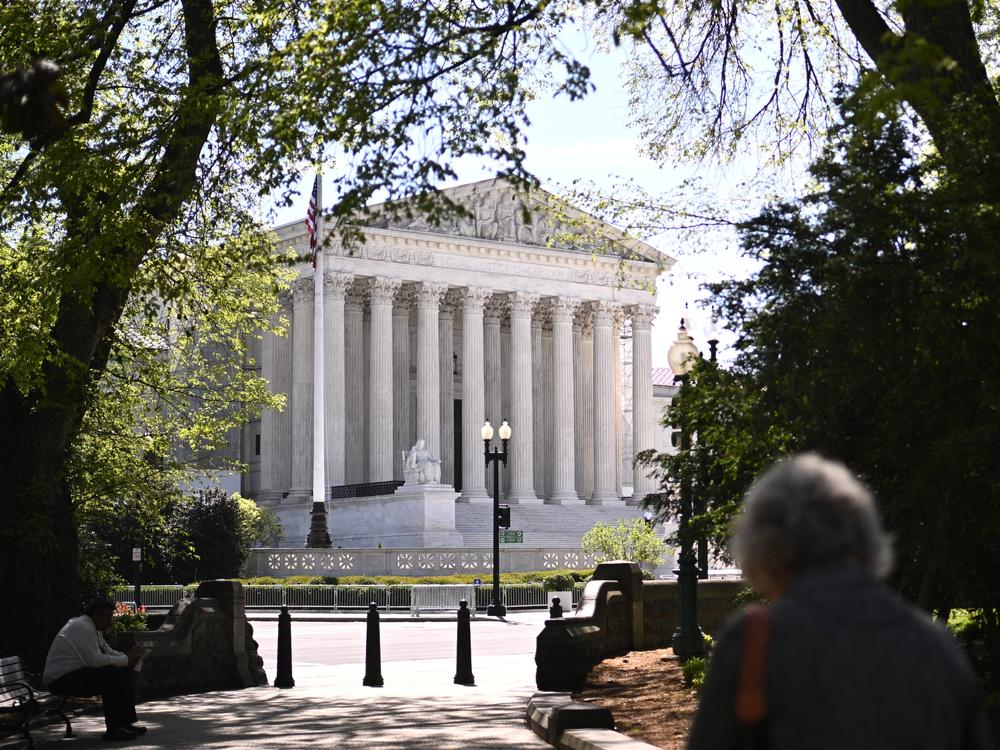Section Branding
Header Content
Trump is arguing for immunity in his criminal case. Will the Supreme Court agree?
Primary Content
You're reading the Consider This newsletter, which unpacks one major news story each day. Subscribe here to get it delivered to your inbox, and listen to more from the Consider This podcast.
1. Tomorrow the Supreme Court hears arguments in the Donald Trump immunity case.
Special prosecutor Jack Smith has charged Trump with a number of crimes related to the effort to overturn the 2020 presidential election. Trump is arguing he can't be prosecuted, saying those same events are official acts he undertook as president to safeguard the integrity of the race – that position has been met with skepticism.
- The federal appeals court ruled on this, and rejected this argument by Trump and his legal team.
- Some legal observers believe it is extremely unlikely the Supreme Court will give Trump complete immunity.
University of Texas Law Professor Lee Kovarsky believes the case is worth hearing because the Supreme Court has never fully resolved whether a president is immune from criminal prosecution for his conduct in office.
"Donald Trump and people in Trumpworld are being pretty explicit about their intent to weaponize the Justice Department and to do so against future presidents. And if we're entering a new political era in which newer presidents prosecute their predecessors, you can't really put the genie back in the bottle, but you can control the downside somewhat with certain kinds of immunity."
2. How does the timing of all this play into the Presidential election?
The court's decision to hear this case —whatever the eventual ruling— delays the start of a criminal trial.
Kovarsky says this is a win for Trump, "Because if the delay of the trial is sufficient to push it past the election and Trump wins the election, the case goes away... He either could find a way to get his Justice Department to get rid of the prosecution while it sits on appeal in some way. Or he could just self-pardon."
The law professor also says that the court could move faster if it wanted to. "It could have moved slower if it wanted to as well. But I think that the court will have questions about whether it should be taking the election into account, either when it's deciding the pace of its own opinion writing or when it's announcing what the lower courts are supposed to do after it issues its opinion."
So the supreme court is about to decide whether Trump can be prosecuted in federal court. Whether he ultimately stands trial may depend on how quickly they make that decision.
3. So will the election fraud case ever come to trial?
- A decision in the case could come quickly, or the court could decide the case on the last day of the term, which is at the end of June.
- U.S. District Judge Tanya Chutkan, the judge overseeing Trump's criminal case, has indicated that she's going to give the parties about three months before trial to prepare.
- If that three months runs from the end of June, then that puts a trial starting at the beginning of September.
"I think it's highly likely that a jury is sworn in this case and evidence is introduced against him in which prosecutors argue that he is unique among all American presidents in having disrupted the peaceful transition of power," Kovarsky says. "I am not at all certain he gets convicted of that by the jury. And if he does get convicted of that crime by a jury, if he wins the election, it won't matter."
For sponsor-free episodes of Consider This, sign up for Consider This+ via Apple Podcasts or at plus.npr.org. Email us at considerthis@npr.org.

